Ph.D.
20/03/2023 2023-04-05 6:41Ph.D.
Ph.D.
ADVANCING LEGAL SCHOLARSHIP THROUGH RESEARCH
About The Program
Jindal Global Law School (JGLS) places a strong emphasis on research, and the Ph.D. programme is no exception. The programme is designed to align with JGLS's goal of being at the forefront of cutting-edge research. With the aim of providing globalized legal education, the Ph.D. coursework is designed to equip students with the necessary skills to conduct research on legal issues from a global perspective. This approach allows students to think innovatively and apply their knowledge to emerging global legal issues. The faculty at JGLS are exceptional and inspire students to work hard and engage in meticulous research with a sense of passionate commitment to achieving excellence.
The Global Ph.D. Programme offered by JGLS provides research aspirants with a wide range of opportunities to develop their thesis. The programme offers students access to research funding, resources, and support to ensure that they can focus on their research in a stimulating and supportive environment. JGLS also offers students the opportunity to collaborate with other leading universities and research institutions worldwide, providing a truly global perspective on their research. By pursuing a Ph.D. at JGLS, students can expect to gain a deep understanding of legal issues on a global scale and become experts in their chosen field of study.
What Makes It Different at JGU
The Ph.D. programme offered by JGLS is designed to be a challenging and stimulating experience that equips students with the essential skills and resources required to excel in the field of legal research. Pursuing a Ph.D. at JGLS offers students a unique opportunity to engage in cutting-edge research, attend international conferences, and work alongside renowned scholars in the legal profession. The programme is particularly suited for individuals who are deeply passionate about law and are committed to contributing to the advancement of legal research.
The Ph.D. programme at JGLS is an excellent opportunity for students to engage in interdisciplinary research, combining legal research with other fields of study such as economics, sociology, and political science. This interdisciplinary approach enables students to develop a broader perspective and gain valuable insights into the complex challenges facing the legal profession.
Moreover, JGLS provides a supportive environment for research, offering students access to an extensive library, cutting-edge technology, and a range of research resources to facilitate their work.
One of the most significant advantages of pursuing a Ph.D. at JGLS is the opportunity to work alongside distinguished scholars in the field of law. JGLS has a world-class faculty comprising renowned scholars, practitioners, and experts from diverse legal fields. Students can expect to benefit from the guidance and mentorship of these accomplished professionals, who will help them develop their research skills and offer insights into the latest trends and developments in the legal profession.
Furthermore, JGLS has a vibrant research community, which provides ample opportunities for collaboration, networking, and knowledge-sharing with other students and faculty members.

BEST IN THE WORLD
IN SOUTH ASIA
IN INDIA
To be eligible for the Ph.D. programme at JGLS, candidates must have a Master’s degree with at least 55% marks or an equivalent grade in any relevant discipline. Alternatively, candidates who have completed a professional qualification such as CA/ICWA/CFA/CS with a minimum of 55% marks may also apply. Candidates with more than three years of industry, teaching, practicing, managerial, or professional experience are given preference during the selection process.
There is a relaxation of 5% of marks from 55% to 50% for candidates belonging to SC/ST/Differently-Abled categories or those who obtained their Master’s degree before September 19th, 1991. However, this relaxation is applicable only based on the qualifying marks without including the grace mark procedures.
The Ph.D. programme offers admission under two categories, full-time Ph.D. student (with or without fellowship) and part-time Ph.D. student (without fellowship). A full-time Ph.D. student is someone who is enrolled in the programme and devotes their full-time to completing the requirements of the degree. On the other hand, a part-time Ph.D. student is someone who is registered in the programme but devotes only a part of their time to completing the requirements while fulfilling other employment obligations.
These are some of the areas of specialization offered in the Ph.D. programme at JGLS. Students can choose their research areas based on their interests, expertise and career aspirations.
International Law: This specialization includes the study of laws governing space activities and international legal systems. It also covers humanitarian laws and the role of international law in conflict resolution.
Constitutional Law: This area of specialization covers election law, electoral reforms, rights of refugees, right to health, indigenous rights, and judicial delays. Students can explore the role of the constitution in shaping public policies and political processes.
Comparative Law: Comparative constitutionalism is a focus area in this specialization. Students can explore the differences and similarities between constitutional systems in different countries.
Competition Law: This specialization covers the law and procedure of the Competition Commission of India. Students can study the application of competition laws to businesses and examine the impact of anti-competitive practices on consumers.
Law of Taxation: This area of specialization covers international taxation, including tax treaties and transfer pricing. Students can explore the legal and ethical aspects of tax planning and tax avoidance.
Criminal Law: This specialization covers the treatment of juvenile offenders and the concept of restorative justice. Students can examine the criminal justice system and the impact of criminal laws on individuals and society.
Socio-Legal Studies: This specialization includes cause lawyering and commercial surrogacy. Students can examine the social, economic, and political factors that influence legal outcomes and explore the role of law in addressing social issues.
Intellectual Property Rights: This specialization covers policy on innovation and data privacy. Students can explore the legal and ethical implications of intellectual property laws and the impact of technology on privacy.
Legal Philosophy: Organizational theory is a focus area in this specialization. Students can examine the legal and ethical aspects of organizational behavior and analyze the role of law in shaping organizational practices.
The admission process for the Ph.D. programme at JGU involves three main steps. In the first step, applicants must fill out an online application on the JGU website. Along with the application, they are required to submit a statement of purpose (SOP), copies of their transcripts from their previous academic degrees, an updated curriculum vitae (CV), and a research proposal of 1500-2500 words. The research proposal should outline the general area of study, identify central issues or questions to be addressed, and refer to the current state of knowledge and recent debates on the topic.
In the second step of the admission process, applicants must take an online Research Entrance Examination conducted by JGU. The syllabus for the exam is divided into 50% research methodology and 50% subject-specific questions. However, some applicants may be exempt from taking the entrance exam if they have qualified for certain UGC/CSIR/JRF/NET/SLET (Haryana State) or any other similar examinations, as per the concerned JGU school requirement.
Finally, in the third step, applicants who successfully pass the research entrance exam must appear for an interview with the School Doctoral Committee (SDC). During the interview, the candidate will present their tentative research idea, referring to the current state of knowledge and recent developments from the proposed area of research. The SDC will evaluate the candidate’s research potential and suitability for the Ph.D. programme at JGU.
The JGU Ph.D. programme provides fellowship assistance to eligible candidates. The fellowship is limited to a maximum of 2 scholars each school/institute per year. The JGU fellowship scheme provides a stipend of Rs. 35,000/- per month to scholars during coursework and up to synopsis completion. Upon completion of synopsis, the fellowship amount may be increased up to Rs. 40,000/- per month for Ph.D. scholars engaged in teaching assignments.
Each full-time Ph.D. scholar, upon successful completion of coursework and synopsis, must engage in a teaching assignment. The fellowship amount is provided based on the scholar’s monthly performance as per JGU norms. The tenure for fellowship under the JGU fellowship scheme is only for three (3) years, and upon expiry, the scholar’s work is evaluated by experts/SDC.
If the research work is satisfactory, the scholar’s tenure may be extended for a further six (6) months with special approval from the Vice-Chancellor of JGU. The fellowship also provides a contingency grant of Rs. 20,000/- per annum, staff development financial support up to a maximum of Rs. 75,000/-, and coverage for two (2) national conferences and one (1) international conference during the Ph.D. tenure.
Additionally, every full-time Ph.D. scholar at JGU is given complimentary health insurance coverage of up to Rs. 50,000/-. However, the stipend/fellowship amount received is not liable for any kind of benefits such as gratuity, pension, PF, etc.
Jindal Global Law School (JGLS) provides an academic support programme called the ‘LIFE in Law’ programme for students who face academic challenges. This programme is designed to assist students who need additional support in passing their re-sit examinations. The ‘LIFE in Law’ programme is a teaching-oriented program, with a focus on preparing students for re-sit examinations.
The programme is designed to cater to the needs of students who require assistance in academics. It provides a support system to help students overcome academic challenges and succeed in their studies. The entire programme is designed to be teaching-oriented, with a focus on preparing students for re-sit examinations.
Overall, the ‘LIFE in Law’ programme at JGLS is a valuable resource for students who require academic support, providing them with the necessary tools to overcome academic challenges and succeed in their studies.
